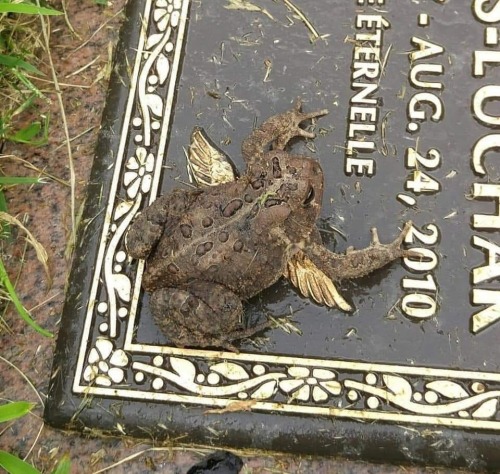Zieht-in-den-norden - Alles Inoffiziell Hier

More Posts from Zieht-in-den-norden and Others

the relationship between a person and the native flora and fauna of where they grew up is something that can actually be so personal
Ohrwurm von Banner MEIN GOTT
hast du jemals gedacht 'hmmm🤔.. ich könnt ja zu den Pfadfindern gehen..' .STOP. ✋🏼 Waldjugend ist besser
"Mach dir gar keinen Stress, ich hab genug Töpfe. [...] Dann lass uns die Woche zum großen Topftausch treffen. Die große Topf-Rochade."

Ethiopian wolves feed on the sweet nectar of a local flower, picking up pollen on their snouts as they do so – which may make them the first carnivores discovered to act as pollinators.
The Ethiopian wolf (Canis simensis) is the rarest wild canid species in the world and Africa’s most threatened carnivore. Endemic to the Ethiopian Highlands, fewer than 500 individuals survive.
Sandra Lai at the University of Oxford and her colleagues observed wild Ethiopian wolves lapping up the nectar of Ethiopian red hot poker (Kniphofia foliosa) flowers. Local people in the mountains have traditionally used the nectar as a sweetener for coffee and on flat bread.
The wolves are thought to be the first large carnivore species ever to be recorded regularly feeding on nectar.
“For large carnivores, such as wolves, nectar-feeding is very unusual, due to the lack of physical adaptations, such as a long tongue or specialised snout, and because most flowers are too fragile or produce too little nectar to be interesting for large animals,” says Lai.
The sturdy, nectar-rich flower heads of the poker plant make this behaviour possible, she says. “To my knowledge, no other large carnivorous predator exhibits nectar-feeding, though some omnivorous bears may opportunistically forage for nectar, albeit rarely and poorly documented.”
Some of the wolves were seen visiting as many as 30 blooms in a single trip. As they lick the nectar, the wolves’ muzzles get covered in pollen, which they could potentially be transferring from flower to flower as they feed.
“The behaviour is interesting because it shows nectar-feeding and pollination by non-flying mammals might be more widespread than currently recognised, and that the ecological significance of these lesser-known pollinators might be more important than we think,” says Lai. “It’s very exciting.”
Lai and her colleagues at the Ethiopian Wolf Conservation Programme now hope to dig deeper into the behaviour and its ramifications. “Trying to confirm actual pollination by the wolves would be ideal, but that would be quite challenging,” she says. “I’m also very interested in the social learning aspect of the behaviour. We’ve seen this year adults bringing their juveniles to the flower fields, which could indicate cultural transmission.”
If your life is horrible and you need a new source of meaning and direction.... Do NOT find religion. Learn to identify plants.
the contrabass saxophone is such an absurd instrument




i love tree news
-
 thevampirecrow reblogged this · 1 week ago
thevampirecrow reblogged this · 1 week ago -
 louisthiccsexyglitteryass liked this · 1 week ago
louisthiccsexyglitteryass liked this · 1 week ago -
 five-raccoons-in-a-trenchcoat reblogged this · 1 week ago
five-raccoons-in-a-trenchcoat reblogged this · 1 week ago -
 five-raccoons-in-a-trenchcoat liked this · 1 week ago
five-raccoons-in-a-trenchcoat liked this · 1 week ago -
 ace-aussie-asshole liked this · 1 week ago
ace-aussie-asshole liked this · 1 week ago -
 nyasputin reblogged this · 1 week ago
nyasputin reblogged this · 1 week ago -
 recklessandyoung reblogged this · 1 week ago
recklessandyoung reblogged this · 1 week ago -
 thepandalion reblogged this · 1 week ago
thepandalion reblogged this · 1 week ago -
 woim reblogged this · 1 week ago
woim reblogged this · 1 week ago -
 box-in-a-cage liked this · 1 week ago
box-in-a-cage liked this · 1 week ago -
 box-in-a-cage reblogged this · 1 week ago
box-in-a-cage reblogged this · 1 week ago -
 shadykoalaninja reblogged this · 1 week ago
shadykoalaninja reblogged this · 1 week ago -
 shadykoalaninja liked this · 1 week ago
shadykoalaninja liked this · 1 week ago -
 meshaamem-li reblogged this · 1 week ago
meshaamem-li reblogged this · 1 week ago -
 meshaamem-li liked this · 1 week ago
meshaamem-li liked this · 1 week ago -
 sleepingswift85 liked this · 1 week ago
sleepingswift85 liked this · 1 week ago -
 sleepingswift85 reblogged this · 1 week ago
sleepingswift85 reblogged this · 1 week ago -
 astirysk2electricboogaloo reblogged this · 1 week ago
astirysk2electricboogaloo reblogged this · 1 week ago -
 astirysk2electricboogaloo liked this · 1 week ago
astirysk2electricboogaloo liked this · 1 week ago -
 autistic-katara reblogged this · 1 week ago
autistic-katara reblogged this · 1 week ago -
 autistic-katara liked this · 1 week ago
autistic-katara liked this · 1 week ago -
 bassguitarinablackt-shirt reblogged this · 1 week ago
bassguitarinablackt-shirt reblogged this · 1 week ago -
 bassguitarinablackt-shirt liked this · 1 week ago
bassguitarinablackt-shirt liked this · 1 week ago -
 runwiththerain reblogged this · 1 week ago
runwiththerain reblogged this · 1 week ago -
 dutifulbeacon liked this · 1 week ago
dutifulbeacon liked this · 1 week ago -
 coffeecat8888 liked this · 1 week ago
coffeecat8888 liked this · 1 week ago -
 citrigrade liked this · 1 week ago
citrigrade liked this · 1 week ago -
 cablekn1t reblogged this · 1 week ago
cablekn1t reblogged this · 1 week ago -
 lesbianbroadwaynerd liked this · 1 week ago
lesbianbroadwaynerd liked this · 1 week ago -
 nemene-damendar-boann liked this · 1 week ago
nemene-damendar-boann liked this · 1 week ago -
 sizzlinggladiatoryouth liked this · 1 week ago
sizzlinggladiatoryouth liked this · 1 week ago -
 trauma-official reblogged this · 1 week ago
trauma-official reblogged this · 1 week ago -
 trauma-official liked this · 1 week ago
trauma-official liked this · 1 week ago -
 darthbecky726 liked this · 1 week ago
darthbecky726 liked this · 1 week ago -
 ririwithrice reblogged this · 1 week ago
ririwithrice reblogged this · 1 week ago -
 mildwizim reblogged this · 1 week ago
mildwizim reblogged this · 1 week ago -
 someduedhere reblogged this · 1 week ago
someduedhere reblogged this · 1 week ago -
 cozyflowers liked this · 1 week ago
cozyflowers liked this · 1 week ago -
 alicesbread liked this · 1 week ago
alicesbread liked this · 1 week ago -
 the-girl-who-waited-forthedoctor liked this · 1 week ago
the-girl-who-waited-forthedoctor liked this · 1 week ago -
 deadsolar liked this · 1 week ago
deadsolar liked this · 1 week ago -
 sunlit-snowfall liked this · 2 weeks ago
sunlit-snowfall liked this · 2 weeks ago -
 clockworkcorndog liked this · 2 weeks ago
clockworkcorndog liked this · 2 weeks ago -
 bad-place-to-become-lost liked this · 2 weeks ago
bad-place-to-become-lost liked this · 2 weeks ago -
 shield-your-beliefs reblogged this · 2 weeks ago
shield-your-beliefs reblogged this · 2 weeks ago -
 isdigitalis reblogged this · 2 weeks ago
isdigitalis reblogged this · 2 weeks ago -
 isdigitalis liked this · 2 weeks ago
isdigitalis liked this · 2 weeks ago -
 rararamamaaaaa liked this · 2 weeks ago
rararamamaaaaa liked this · 2 weeks ago -
 fabien-euskadi liked this · 2 weeks ago
fabien-euskadi liked this · 2 weeks ago

monopol der queeren szene in rlp. glaub icher/ihm.
78 posts
